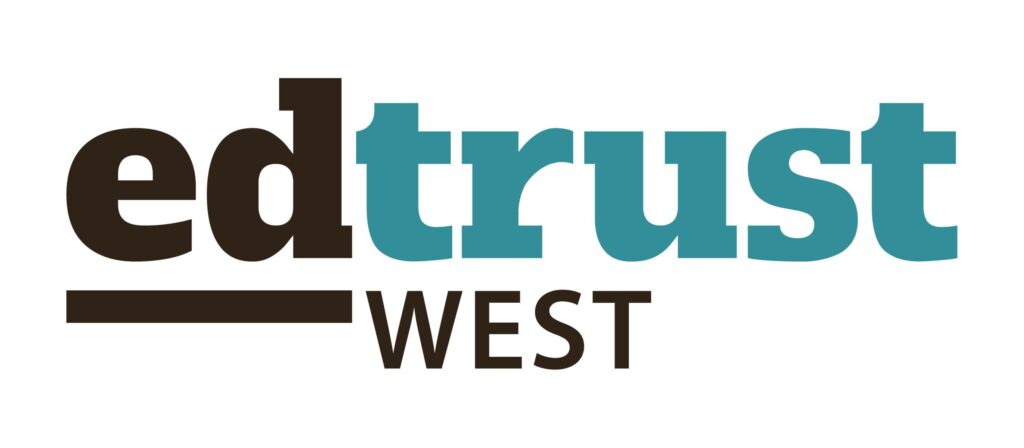As The EdTrust–West releases Moving Forward Together: A Policy Agenda for Racial Equity in California Education Systems in 2023, a list of what we’ll be advocating for in the coming year, I find myself also looking back at the past year.
This time a year ago, I found myself doing something I hadn’t done in years: making New Year’s Resolutions. I planned on spending more time reading for pleasure, working out, and exploring the parks near my home in Oakland. And as often happens with New Year’s resolutions, I wish I’d fared better. I worked more than I intended, meaning I had less time to read and get to the gym. However, I did explore more parks in and around the East Bay, which always makes me feel fortunate to live in such a beautiful place.
I also wrote resolutions for California’s policymakers and leaders, a list of four actions that would move our state more urgently toward racial equity in education. And I’m pleased to report that California has succeeded in three of the four!
- As California began to roll out universal transitional kindergarten in early learning and care, I hoped it would pay special attention to young kids of color. We saw the Legislature deliver on promises for multi-year investments toward universal preschool. The Universal PreKindergarten (UPK) Mixed Delivery Quality and Access Workgroup, established by the Legislature through AB 185 Sec. 2, is an opportunity for the early learning and care field to provide recommendations for a mixed-delivery system model available across a variety of settings. We see these as steps in the right direction toward centering equity for both young children of color and the workforce that educates and cares for them.
- In K-12 education, I hoped that the Instructional Quality Commission (IQC) and State Board of Education (SBE) would adopt a new statewide math framework that treats equity as foundational, rather than peripheral. Although many of our coalition’s recommendations are incorporated into the latest draft, we are still awaiting the State Board of Education to review feedback and approve it. We hope that will happen early in 2023. And in the meantime, 2022 saw another win in math education: $85 million for stronger math educator professional development!
- At the intersection of K-12 and higher education, I wanted California to expand dual enrollment offerings—and improve access for students of color. The final state budget includes $200 million to expand dual enrollment opportunities, giving many more high school students a chance to earn college credit and gain early exposure to higher education.
- In higher education, I urged California to finally stop offering remedial coursework. The final state budget included an Equitable Placement and Completion Block grant and provided community colleges with $64 million in one-time funding to support students in completing transfer-level math and English courses. Governor Newsom also signed AB 1705 (Irwin), which will push community colleges to implement alternative strategies. These are groundbreaking steps toward phasing out these remedial classes, which decrease students’ likelihood of earning a degree and disproportionately affect Black and Latinx students.
California policymakers should feel satisfied by these advances—but in my book, the credit truly goes to advocates and activists who have never stopped demanding that our education systems make our state more equitable, not less. If I have one takeaway, it’s that working together—with students, family, and educator voices at the center of our movement—works.
Landmark legislative and budgetary victories are key, but they don’t magically change the reality that students of color encounter every day. In 2023, advocates will need to focus on implementation. All implementation means is turning, in part, from Sacramento to our own communities and making sure that good laws lead to improvements in our early learning settings, schools, colleges, and universities.
I resolve to do all I can to make even greater strides toward educational equity for California’s students of color. In the new year, I’ll share new resolutions for what students need us to do together in 2023. Until then, happy holidays!

